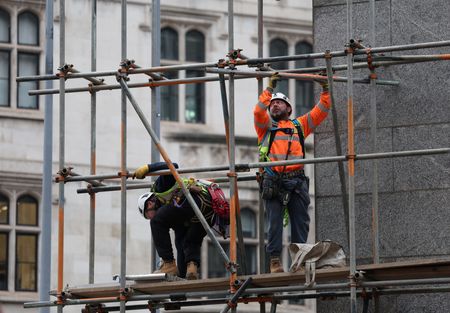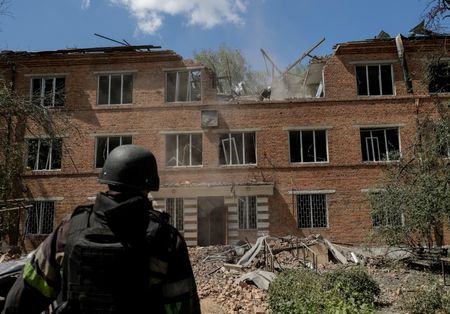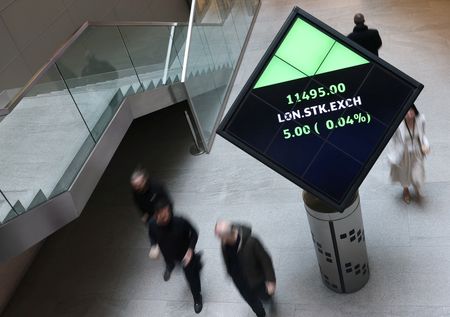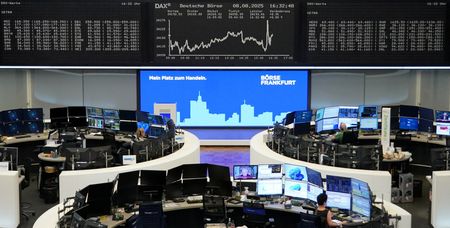By Suban Abdulla
LONDON (Reuters) – Activity among British construction firms shrank sharply in January, marking the first contraction in almost a year, according to a survey published on Thursday that also showed cost pressures escalating.
The S&P Global/CIPS UK Construction Purchasing Managers’ Index fell to 48.1 last month from December’s 53.3, coming in below all forecasts in a Reuters poll of economists.
Tim Moore, economics director at S&P Global Market Intelligence, said a gloomier economic outlook, high borrowing costs and weak confidence had led to a reduction in new work.
The Bank of England is expected to cut interest rates later on Thursday after holding them at 4.75% in December. But its room for further reductions is limited with inflation pressures still strong.
S&P Global’s gauge of housebuilding fell to 44.9 from 47.6 in December, the fastest rate of contraction in a year.
Companies attributed the decline in part to weaker demand.
Prime Minister Keir Starmer government’s is trying to speed up the building of homes.
“Anecdotal evidence suggested that caution regarding demand for new projects was prevalent at the start of 2025, despite strong policy support for house building and hopes for a longer-term boost to supply via planning reform,” Moore said.
Other sectors measured by the PMI fell, too. Civil engineering activity contracted for the first time in 11 months and had its weakest month since November 2023 with a subindex reading of 44.6, due in part to wet weather. The commercial sub-sector declined for the first time since March last year.
Job creation fell marginally, signalling the first shrinkage in staffing in five months.
Input costs increased by the most since April 2023 as suppliers sought to pass on rising energy, fuel and wage costs
While business confidence tumbled, some survey respondents thought major infrastructure spending and green energy projects were likely to boost output levels in the coming 12 months.
The all-sector PMI, which combines the services, manufacturing and construction industries, fell to 50.3 in January from 50.6 in December.
(Reporting by Suban Abdulla; Editing by Hugh Lawson)











